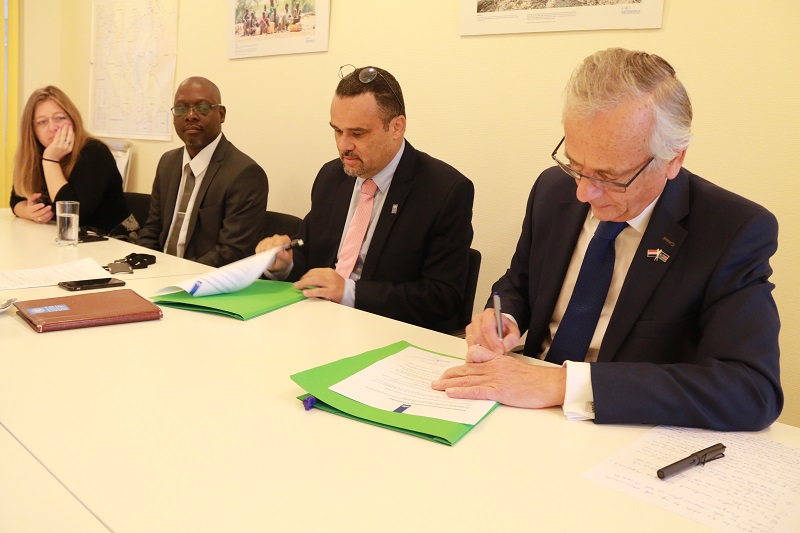The Kingdom of the Netherlands and the United Nations Development Programme (UNDP) signed a new agreement on Thursday extending support to strengthening the rule of law and expanding access to justice for the people of South Sudan through 2020.
The new funding totals US$10.2 million until March 2020.
During the signing ceremony, Netherlands Ambassador Geert Geut said that the Netherlands has a global commitment to supporting the rule of law, especially in countries experiencing conflict, where citizens face additional challenges in accessing justice.
“The Kingdom of Netherlands has shown unwavering commitment to improving the lives and well-being of the people of South Sudan, with an eye first to interventions that support rule of law institutions to improve security at the community-level, and equip those same institutions with the capacity to care for and seek justice for victims of crime and conflict,” said UNDP South Sudan Officer-in-Charge Jean-Luc Stalon.
“The next phase of the project is designed to respond to the present context of South Sudan, and in this regard, UNDP has been enhancing its strategic positioning and re-aligning its support to rule of law institutions to support a conflict setting, and an eventual early recovery, post-conflict model,” said Mr. Stalon, at the agreement signing ceremony.
“Within the broader context of justice reform, UNDP’s specific niche lies in supporting justice and related systems so that they work for those who are poor and disadvantaged. This response falls within UNDP’s mandate to reduce poverty, strengthen democratic governance and the protection of human rights.”
The Access to Justice and Rule of Law project provides support to rule of law institutions and civil society at three levels: policy and legislative development, capacity building, and supporting service delivery to citizens.




